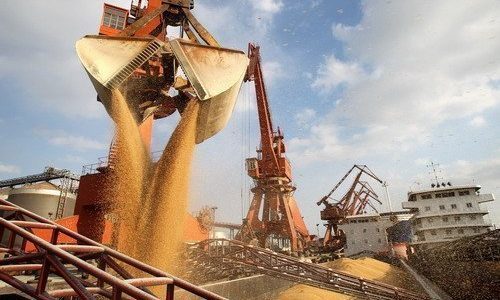
With Russia, Ukraine, Turkey and the United Nations tipped to sign a deal this week aimed at resuming the shipping of grain from Ukraine across the Black Sea, a new report looks at illicit grain movements in the region.
Israeli maritime artificial intelligence firm Windward is continuing its campaign to highlight what it claims is Russia’s grain theft from Ukraine, issuing a new report on what it terms as grain laundering.
Windward’s new report offers previously unreported information on five vessels engaging in dark activities and ship-to-ship (STS) operations in the Kerch Strait last month as part of what appears to be a coordinated effort to launder grain allegedly stolen from Ukraine.
There has been a 160% increase in dark activities in the Black Sea by bulk carriers flying either the Russian or Syrian flags when comparing July 2020-June 2021 to July 2021-June 2022, according to Windward. Of the events that happened between July 2021 and June 2022, 73% took place after the war began.
There’s a second component: ship-to-ship (STS) meetings. Mostly Russian-flagged cargo vessels and other ships operating under flags of convenience appear to be meeting with one to four cargo and service vessels simultaneously in the Kerch Port offshore waiting area.
“Grain smuggling goes beyond mere dark activities to conceal the origin, transportation, and destination of stolen grain,” the report states.

“It is now clear to every shipping stakeholder dealing with trade that deceptive shipping practices and risk mitigation are relevant to all vessels and types of commodities,” Windward warned.
As early as today, a deal could be thrashed out to get Ukrainian grain moving through the Black Sea. However, insurers are warning that any agreement will need to include naval escorts and guarantees that sea mines are cleared, a tricky exercise given how many have been laid in the near six months of war.
In related news, a Biden administration official said yesterday a price cap on Russian oil should go into effect alongside the December implementation of the European Union’s restrictions on shipping insurance for the commodity.
“We are following on what the Europeans have done,” deputy treasury secretary Wally Adeyemo told the Aspen Security Forum in Colorado. “They introduced the idea of looking to do a price cap but they also said that by December they plan to put in place their insurance ban.”
